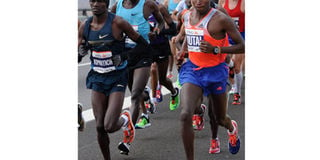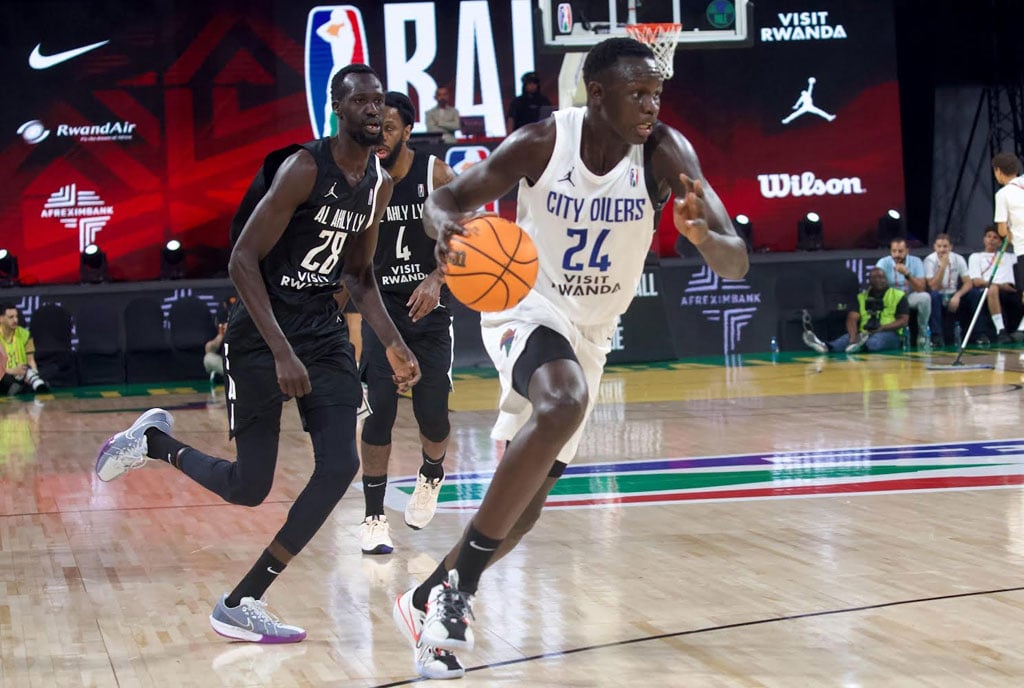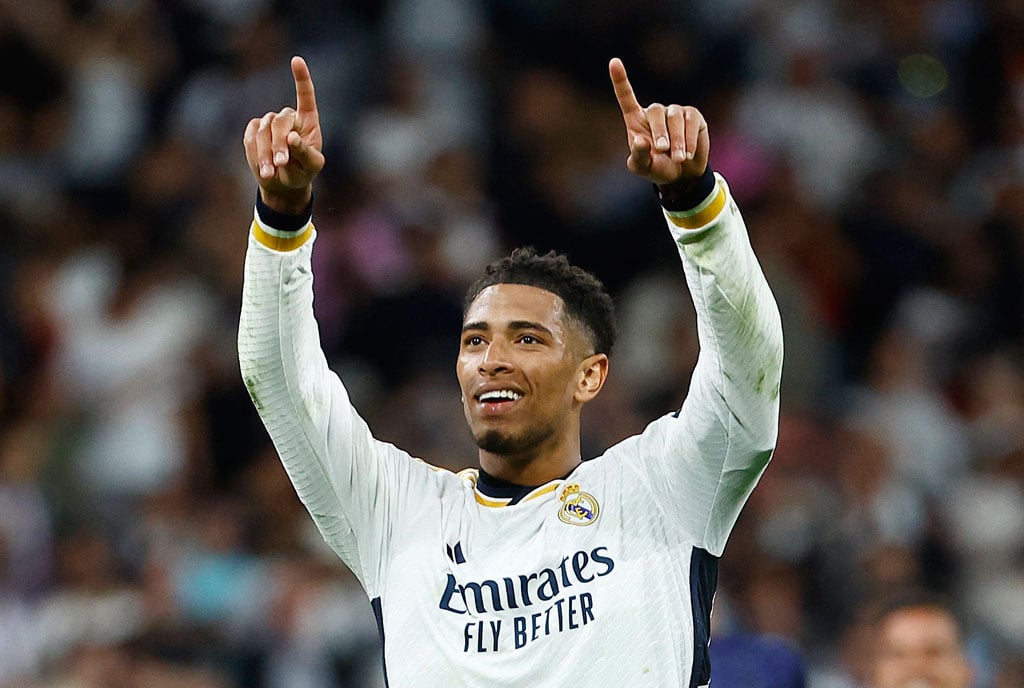Kiprotich: No individual jackpot would beat becoming national hero

Stephen Kiprotich (L) finished a distant 12 but he has already done enough to seal his legendary status. AFP Photo.
What you need to know:
Kiprotich is evidently a great tactician whose amazingly sound strategies and perfect timing won him the Olympics and World Championships in just under a year.
As the New York marathon dragged to an anti-climatic finish Sunday evening, the disappointment around me was understandable but the general impatience and uninformed conclusions ranged from amusing to irritating.
Stephen Kiprotich was resoundingly beaten, outclassed by a quality field headed by Geoffrey Mutai and Tsegaye Kebede, and even bettered by countryman Jackson Kiprop.
From being the virtual unknown laying on an astonishing ambush in London a year ago, to a serious contender out to prove he wasn’t a one-hit wonder in Moscow earlier this year, Kiprotich made his entry as one of the firm favourites to loud cheers from New Yorkers at the scene and maddening applause from expectant Ugandans glued to their tellies.
But as it became increasingly apparent that he would not win this one, for yours truly the final few kilometers became a mixed-bag exercise in explaining the edge Mutai and company had over Kiprotich, the exasperation brewed in me by the dismissive few according to whom I was making ‘lame excuses’.
Evidently a great tactician whose amazingly sound strategies and perfect timing won him the Olympics and World Championships, Kiprotich has to lower his personal best times to a level that will allow him a competitive chance in the flat-out races that city marathons can be, against guys who on average are two or even more minutes faster than him over 42km.
It is however important to comprehend and internalise the fact that the Kenyans (and, lately, to a lesser extent the Ethiopians) prioritise these city marathons in a way Kiprotich couldn’t afford to in the emerging years of his career, so much so that in Nairobi they are branded unpatriotic mercenaries who put self before country. If Kiprotich had won a one-off city marathon like many Kenyans do (Mutai defending his New York Marathon title is more the exception than the rule), he would never have acquired the iconic status that he has today because of winning Olympic and World Championship gold, even if on the face of it these are a lot less financially rewarding.
Missing out on the half-a-million-dollars World Marathon Majors prize on Sunday, or the several jackpots at stake for the various city marathons from New York through Boston and London to Tokyo, is more than compensated for in cash and in kind by becoming his country’s greatest sportsman of all time, a historic luminary on the global stage and a national hero.
A city marathon is for the individual while Olympic glory is for an entire nation; while winning in New York would have brought a hefty cash prize, his house, car, parents’ abode, exponentially burgeoning salary-for-life and all else would have had to come off that prize and not from the willing pockets of his countrymen, corporate bodies and government. And all that money would not have bought a higher rank in the prisons forces or got a hall at the national stadium in Namboole or Uganda’s first high altitude centre named after him …
An Olympic medal is a routine occurrence in Kenya but worth a million times more than its weight in gold here in Uganda. Besides, in the long term his real loot should come from appearance fees and endorsements, both global and local, which he would never have got winning a one-off city marathon as opposed to the Olympic and World double that has immortalised him.
Those who argue that he has to take care of himself first are right especially in a country that barely invests in its own, but in the bigger picture it was intrinsically more important to become a national hero first and in that sense he took the right path.
After all, he has all the time in the world to make those individual conquests considering that of the true contenders in that New York field he was perhaps the youngest, another actuality that needed amplification where I was on Sunday.
=================================
Basketball league playoffs: Fuba, refs must take charge now
Every time I come across long-serving basketball referee Peter Kityo, I am gripped with guilt because of ‘crimes’ I committed against the man 20 whole years ago.
Even if we used to fondly refer to him as Presida (likely in using the French pronunciation of ‘president’ although my memory gets fuzzy there), as a player on the court I remember being quite mean to him on several occasions when he made a call against me or my team that I didn’t like.
It was always heat-of-the-moment stuff with the adrenalin flowing and the competitiveness taking over, as was the case with several other players.
Thankfully, this most affable of men in Uganda’s basketball fraternity didn’t seem to take it personal. Not then, and most certainly not now as he is all too happy to see me when I show up at YMCA or Lugogo to watch a game.
Back then Presida and his officiating colleagues, as well as all of us players and the administrators, were unpaid voluntaries over zealously playing out our basketball roles for the love of the game; it is a whole different ball game today with all the corporate sponsorships, big salaries, scholarships and all else.
And it was relatively easier to officiate games in a league with three top teams in Charging Rhino, Power and my Blue Jackets, the first two the only truly massive rivalry whose clashes were almost always title deciders. Today, the game has grown in such leaps that the competitions are split into divisions, and the men’s playoffs are an eight-team race from which up to five teams have rosters strong enough to win a championship.
It is much harder for the refs, even if they are paid, and Fuba has to take a stance and empower them to clamp down on the indiscipline which has grown from just my verbal attacks on Presida in 1994 to full blown fights.
In playoff games at the weekend four players from UCU, Falcons, Warriors and Ndejje were ejected for getting physical, but I have been told the big men mixing it up in ‘the paint’ were not getting protection from the officials so this could really get out of hand.The most infamous brawl in the history of NBA basketball in the US, between the Indiana Pacers and the Detroit Pistons in 2004, with Ron Artest (now Metta World Peace) as the chief villain, had nine players suspended for 146 games and those players lost $11million in salary.
Suffice it to say that there has not been a re-occurrence of the excess since.
Those are not the figures Fuba has to go for in Uganda of course, but relatively stern punishment will curb the vice from spreading to the crowd as it did in that US brawl, because with the numbers of university students and even younger fans in our stands it could get really bloody.
[email protected]
@markssali on Twitter




